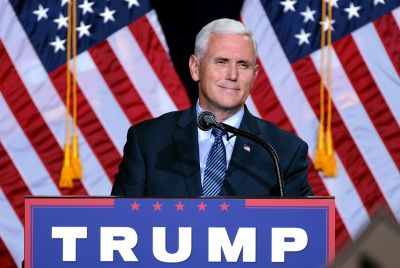Removing Mugabe won't mean democracy: opposition
Removing Zimbabwe President Robert Mugabe would not automatically deliver democracy to the troubled African nation, said opposition leader Morgan Tsvangirai.
Tsvangirai, whose campaigning against Mugabe has seen him brutally attacked, said a political culture of abuse and corruption needed to end before democracy could return.
Let's not get too preoccupied with Mugabe, Tsvangirai told Australian television on Monday.
Let's be preoccupied with the political culture that has been instituted, which disrespects people, that violates people's rights, that undermines the economic well being of people.
So removing Robert Mugabe may suit our own egos but certainly it does not remove the political culture. Removing Robert Mugabe may not necessarily mean we have created democracy, he said.
Tsvangirai said the killings and violence under Mugabe's regime was enough to take the Zimbabwe leader to court on criminal charges, but such action would only cause instability.
Given the choice between giving Mugabe amnesty and allowing him to leave so that we can get on with our lives and restore the stability of the country, I think people would chose that, said Tsvangirai.
Mugabe had rigged elections over the past six years to maintain power and his grip on the country had led to political, economic and health crises, said the opposition leader.
AIDS kills almost 4,000 Zimbabweans a week, inflation is running at 14,000 percent, electricity is a luxury and about one million school-age children are not going to school, he said.
Mugabe's crackdown on our people leaves a trail of broken limbs, rape victims, torture victims, dead bodies. The unprovoked and continuing attacks on all Zimbabweans advocating for peaceful change must stop and indeed it must stop now, said Tsvangirai.
Tsvangirai, who will meet with Australia's foreign minister on Tuesday, said Australia had led international efforts to restore democracy to Zimbabwe.
Australia, I think has moved far ahead of other countries in ensuring that at least pressure is applied through multilateral interventions, than any other country so far, he said.
Over the last five years Australia has imposed sanctions on Zimbabwe such as restricting senior government officials and state-owned enterprise managers from visiting Australia.
In May, Australian Prime Minister John Howard banned the Australian cricket team from visiting Zimbabwe.
In July, Australia upgraded its Zimbabwe travel warnings, saying a high level of criminal activity, the absence of the rule of law and deteriorating economic conditions could lead to civil unrest at any time.
© Copyright Thomson Reuters 2024. All rights reserved.





















